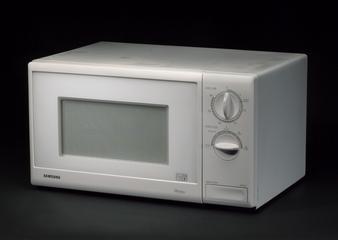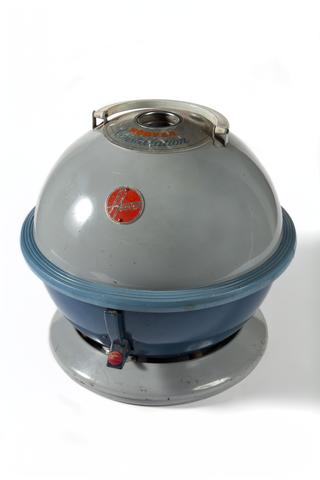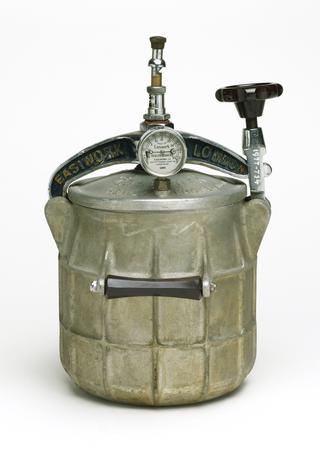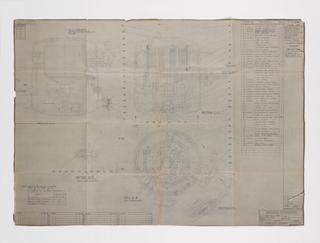


























Dabba, or tiffin tin lunchbox. People called dabbawalas (overwhelmingly male, though there are occasionally females) transport hot, homecooked lunches to workers in Mumbai. Meals are delivered through a system of dabbawalas, local trains, bicycles and pushcarts. All meals are delivered by 13:00. Made up of four tiers, this lunchbox would start in a family home where usually the females in the household would prepare a hot lunch for the male office worker (father, husband, son) in the family. It would then be picked up at the house by a dabbawala who would mark it in a special code which indicates where the dabba originates from and its final destination. After lunch, the dabba would be picked up from the worker and returned to the original home. This system was developed in 1896 by 30-year-old Madadeo Havaji Bachche in Dharamshala, Himachal Pradesh. It started as a small business, but quickly grew into a large, efficient and incredibly accurate delivery system.
The dabba tin lunchbox is used as part of an incredibly efficient and sophisticated lunch-distribution system. The dabba is a homemade lunch which is delivered to office workers in Mumbai who are unable to go home for their midday meal. The traditional tins resemble small milk pails, though plastic lunchboxes are also used. The lunches are usually made by families at home, generally by the women in the household. Each dabba comes in two, three or four tiers. The largest tier is the bottom and usually holds the rice, while the others include a curry, vegetables, dal, flatbreads and dessert. The delivery workers, known as dabbawalas, number about 5,000 and deliver about 200,000 lunches every workday.
The system began in 1896 by 30-year-old Madadeo Havaji Bachche in Dharamshala, Himachal Pradesh. It started as a small business, but quickly grew. Dabbawalas dress in a white cap and many also have a bicycle or pushcart for transporting the lunches. The carbon footprint of the delivery system is incredibly small with most food being delivered by bicycle and local trains. Morning dabba collection in households must be completed in about 30 seconds. If the dabbawala is late or if the dabba is not ready, the schedule for the entire day is in jeopardy. The dabbas are then colour-coded with numbers and letters which indicate where it originates as well as its final destination. The lunches get transported by a dabbawala to a sorting place where they are organised into groups. They are then transported by train to the railway station where the boxes are unloaded by local dabbawalas who deliver them. On average, each lunchbox is handled by four different dabbawalas and travels about 60-70 km
Details
- Category:
- Domestic Appliances
- Object Number:
- 2019-214
- Materials:
- tin (metal)
- Measurements:
-
inner tin: 260 mm x 172 mm x 115 mm,
outer tin: 272 mm x 170 mm x 160 mm,
individual tiers: 70 mm 115 mm,
- type:
- lunchboxes




